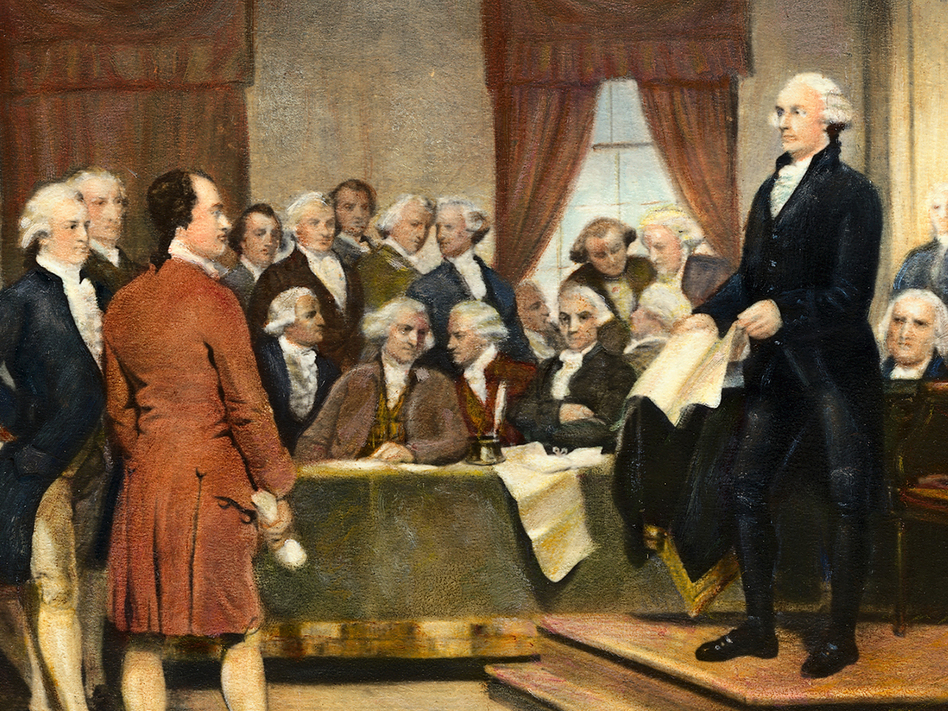ERA 3: Revolution and the New Nation (1754–1820s)
Was the Constitution An Economic Document? by Henry Steele Commager
Guiding Questions
Is the Constitution an economic document or a political one?
Which parts of the Constitution support economic rights and which parts support political rights?

Signing the Constitution
Teacher-to-Teacher
Beard offers a view of the US Constitution that is perhaps different from anyone writing as his contemporary. Ultimately, Beard asserts the Constitution can be understood through an economic lens and this is the approach through which to interpret the intent and goals of the delegates at the Constitutional Convention. While pointing to the role of property in making constitutional decisions, Beard asserts that the delegates were concerned and driven predominantly by protecting their economic interests. However, Commager challenges this perspective by asserting the document was ultimately a political and not an economic document. Comparing both writings along with the writings of other primary sources provides students the chance to evaluate and analysis each perspective.
- The Constitution: Was It An Economic Document? (December 1958 | Volume: 10, Issue: 1) articles_ah
- U.S. Constitution historical_documents
- Federalist No. 1 historical_documents
- An Economic Interpretation of the Constitution of the United States: Selections historical_documents
- Data on the Framers of the Constitution historical_documents
- Economic Growth in America historical_images

